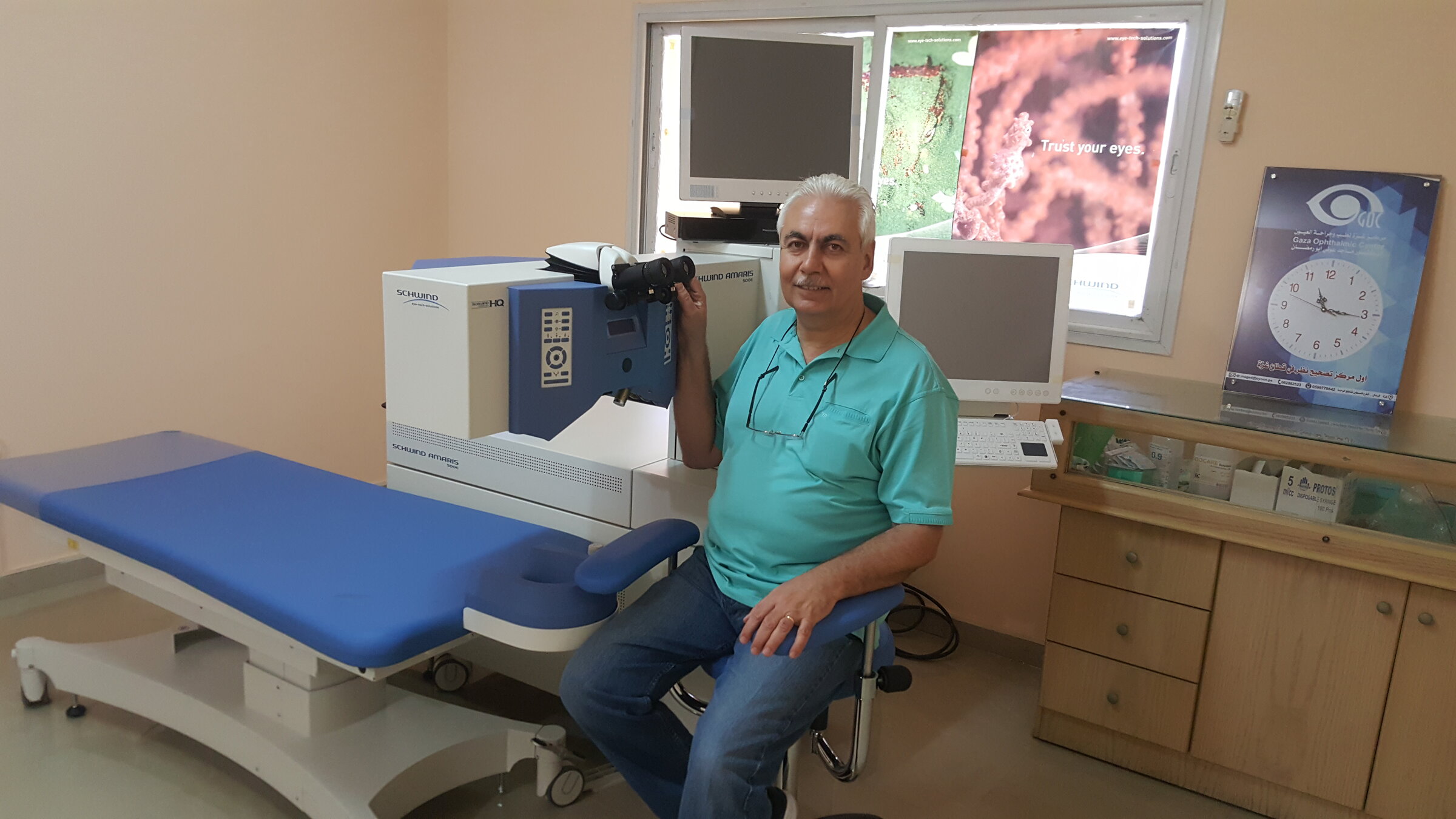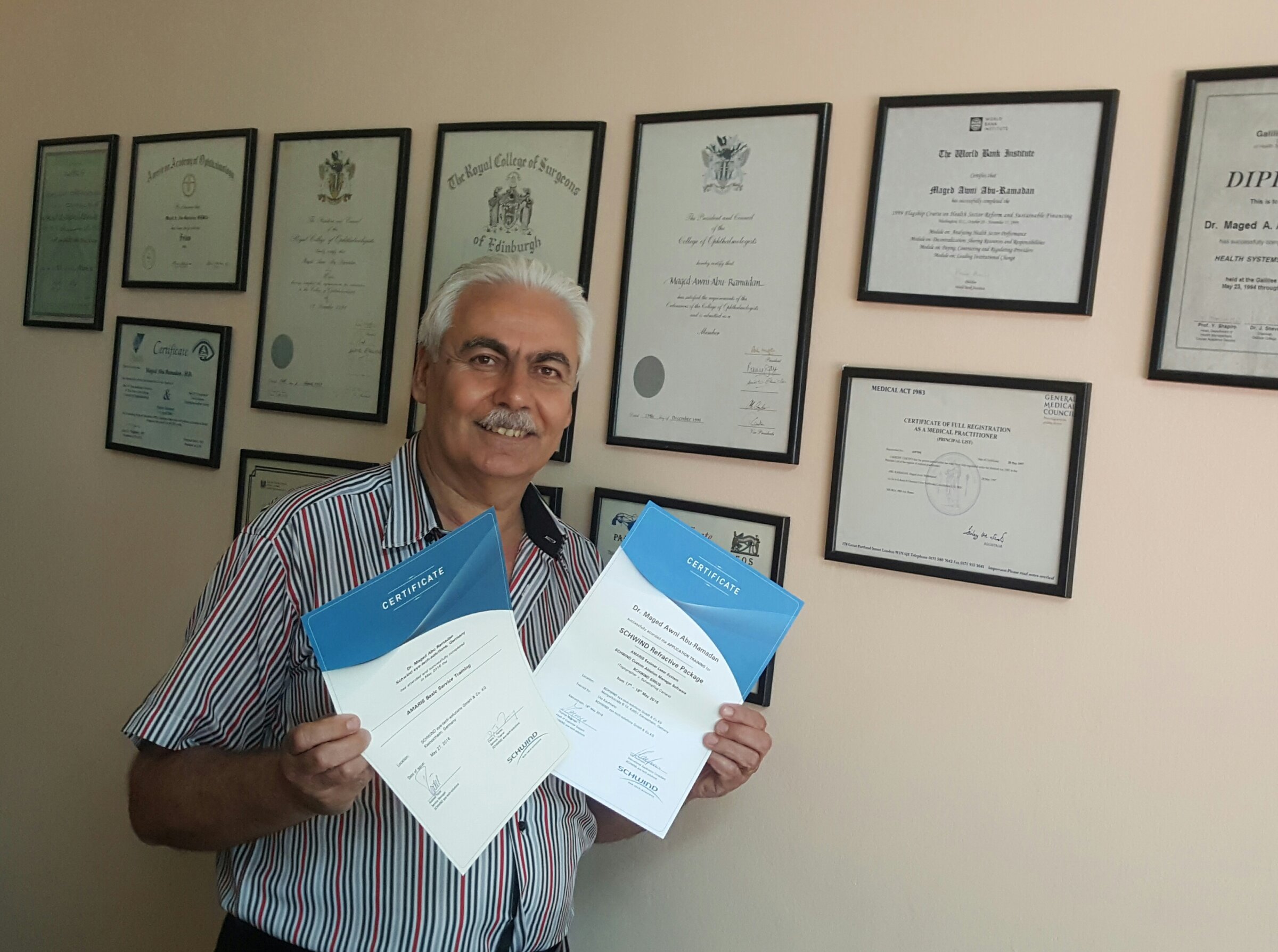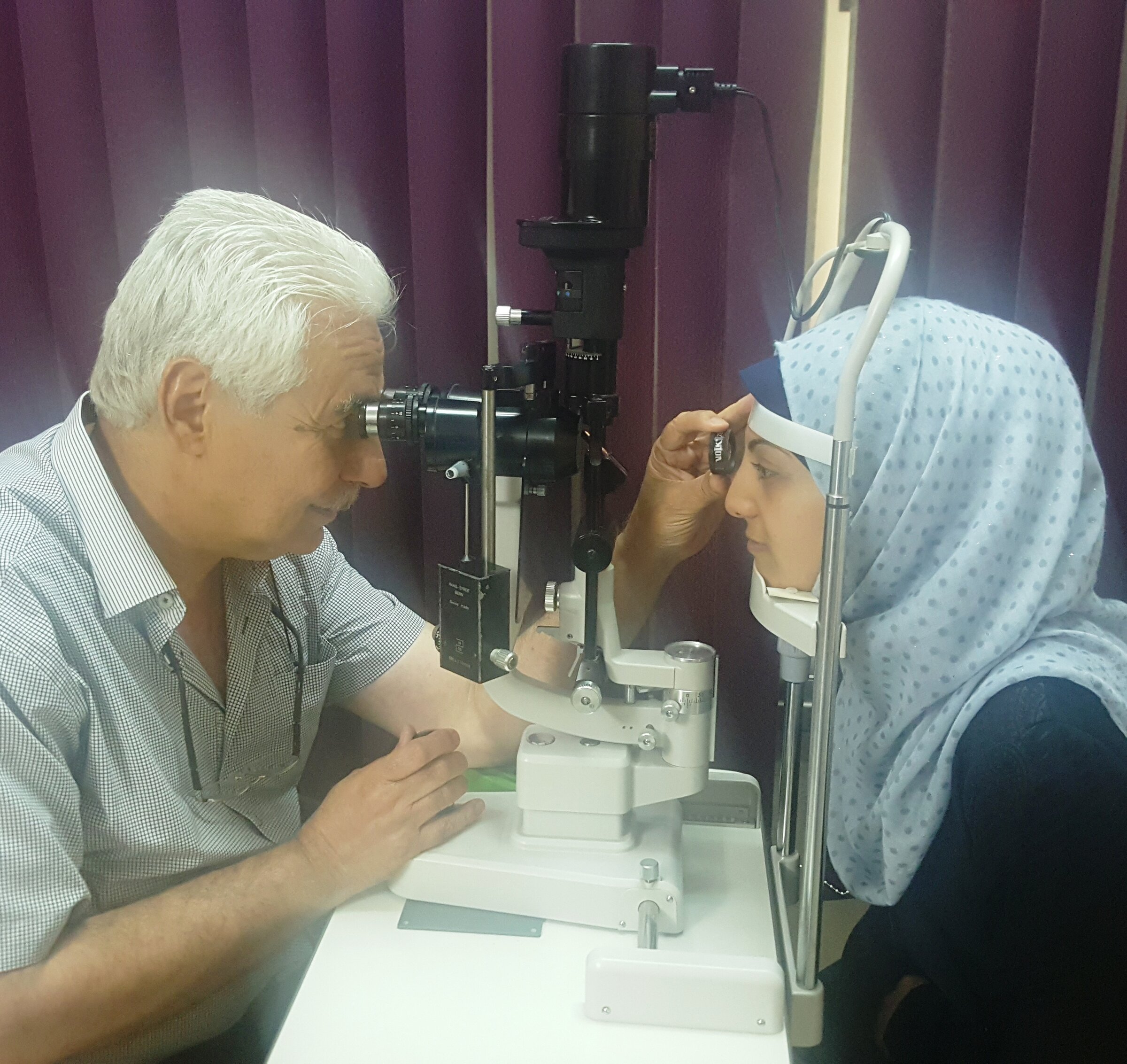The coastal region on the eastern Mediterranean Sea has endured no less than three wars in the last ten years alone. The Gaza Ophthalmic Centre in Gaza City, headed by Dr. Maged Abu-Ramadan, offers its patients a wide range of treatments in spite of the very difficult circumstances. For ten years now, the clinic has been using SCHWIND technologies, and since spring 2016 the AMARIS 500E.
Dr. Maged Abu-Ramadan worked as an ophthalmologist at Lincoln County Hospital in Great Britain for four years before setting up the clinic in the Gaza Strip in 1992. Since then he has been the clinic‘s director and works as an ophthalmologist there. In 1997 he also became president of the Palestinian Ophthalmological Society, and in 2003 honorary treasurer of the Middle East Africa Council of Ophthalmology (MEACO), as well as being Professor of Ophthalmology, Neuroanatomy and Neurophysiology at Al-Azhar University Medical School in Gaza. As if that were not enough, as Mayor of Gaza City, he is currently responsible for developing the public water supply infrastructure in the entire Gaza Strip.
„As an independent Gazan, I have held various political posts over a period of more than 20 years. My aim has always been to contribute to the modernisation of public services – especially health care“, says Dr. Abu-Ramadan.
Gaza Ophthalmic Centre
Together with his team, comprising two other ophthalmologists, three nurses, three optometrists and two administrators, Dr. Abu-Ramadan manages the day-to-day running of the clinic – in a region where life is difficult and dangerous for doctors, their staff and the patients. The closed borders make it difficult to obtain the necessary supplies, equipment, spare parts and service support. Dr. Abu-Ramadan has to limit his attendance at international congresses to a minimum because travelling to a Western European country means showing his passport at eight checkpoints, and in some cases he also has to obtain a special permit. The effects on his private life are also considerable.
The Gaza Ophthalmic Centre offers a wide range of treatments for patients with defective vision, strabismus, cataracts, glaucoma and inflammatory or infectious eye diseases. At 250 eyes each year, refractive laser surgery constitutes the majority of surgical treatments – in this area, the clinic performs almost exclusively surface treatments. Given an unemployment rate of 40% and a very low GNP, only a fraction of the potential candidates can afford laser correction eye surgery. “To help my patients, I have reduced the fees to the bare minimum possible – even though the number of surgeries performed per year is much less than optimum. Many cases of hardship have been treated free of charge”, says Dr. Abu-Ramadan.
Strong family support
75 percent of refractive patients are young women aged between 18 and 25, most of whom want to receive laser eye surgery because they are about to get married.
This is where close family ties in Gaza come into play: often the patient‘s entire family contribute to the cost of treatment. However, up to 30 percent of Gazans who are interested in laser surgery show signs of corneal ectasia – presumably caused by the very high prevalence of allergic eye conditions, eye rubbing or steroid use.
Promoting success
The main driver of the clinic‘s success is word of mouth, or in other words patients who recommend the clinic to others. “Gazans attach particular importance to being treated in a clinic they trust and achieving reliable vision outcomes”, says Dr. Abu-Ramadan. For ten years he has been treating his patients with SCHWIND technologies: “SCHWIND eye-tech-solutions is a great company. I receive every support I need to enable me to perform my treatments optimally: highly developed laser technology, very dedicated staff, fast handling of my enquiries and excellent service from Customer Support and the Technical Service – something especially important to me.”
Just recently, the clinic decided to purchase the AMARIS 500E. “The state-of-the-art technology of the AMARIS family, the user-friendly platform for diagnosis, planning and treatment, the highly sophisticated eye tracking, the SmartSurfACE and PresbyMAX treatment options, and the ease of maintenance are, for me, the most important advantages”, says Dr. Abu-Ramadan.
An important issue for the Gazan eye surgeon is the large number of laser candidates with corneal weakness. This applies to Gaza as it does to many other countries in the Middle East. For these patients, the AMARIS technology with corneal collagen crosslinking (CXL) makes a significant contribution to corneal stability. In combination with corneal wavefront, it also produces enhanced visual acuity in many cases.




